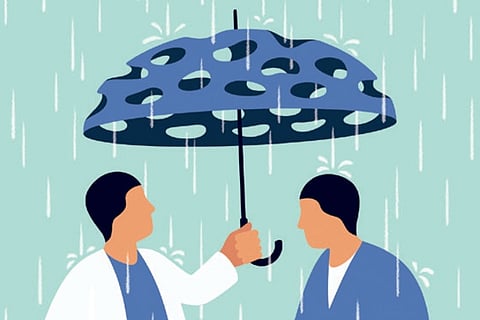

Chennai
At minimum, I expected research that would help people in distress improve their lives. But during my tenure, the science informing mental health care did not proceed smoothly along any trajectory. On the one hand, the field attracted enormous scientific talent, and there were significant discoveries, particularly in elucidating levels of consciousness in brain injury patients who appear unresponsive; and in formulating the first persuasive hypothesis of a cause for schizophrenia, based in brain biology. On the other hand, the science did little to improve the lives of the millions of people living with persistent mental distress. Almost every measure of our collective mental health — rates of suicide, anxiety, depression, addiction deaths, psychiatric prescription use — went the wrong direction, even as access to services expanded greatly.
What happened? After 20 years covering the field, I have a few theories, and some ideas on what might be required to turn things around.
Early on in my job, I started to field a steady stream of calls and emails, usually from parents asking for advice.
I always provided suggestions and referrals (with a disclaimer), and helped decode the psychiatric jargon, if needed. I also followed up later, to see how things were going. This second conversation was a reminder, every time, that the mental health system, for all its caring professionals, is chaotic and extremely difficult to navigate. There are few system-wide standards, and vast and hidden differences in quality of care. Good luck finding an authoritative guide to navigating the full range of appropriate options. In time, those seeking help became the lens through which I saw my job, and their questions became my own. What does a diagnosis of bipolar really mean, in a young child? Is this drug necessary? How trustworthy is the evidence? One answer to that last question came in the mid-2000s, when the Food and Drug Administration held a series of hearings on whether antidepressant drugs, like Paxil, Prozac and Zoloft, backfired in a small number of users, causing suicidal thinking and behavior.
How can the fields of behavior and brain science begin to turn the corner, and become relevant in people’s lives? For one, prominent scientists who recognize the urgency will have to speak more candidly about how money, both public and private, can warp research priorities. And funders, for their part, will have to listen, perhaps supporting more small teams working to build the psychological equivalent of a life preserver: treatments and supports and innovations that could be implemented in the near future. There’s a reason that so many people use binge drinking, playing the lotto and runaway eating to support their mental health: because the effects are reliable. Because they don’t require a prescription. And because they’re available, right now. - NYT
Visit news.dtnext.in to explore our interactive epaper!
Download the DT Next app for more exciting features!
Click here for iOS
Click here for Android